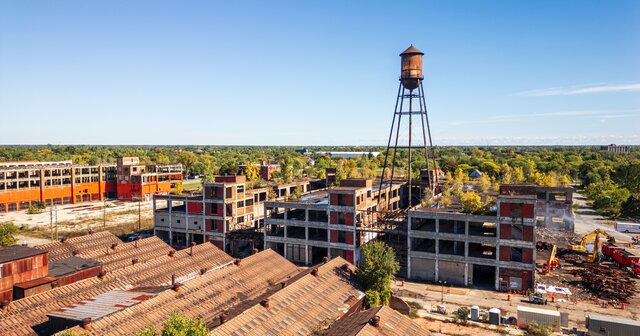

State lawmakers keep picking the auto industry as a winner, but their bets fail to deliver. Lawmakers ought to be more careful the next time an automaker comes around with a factory to sell.
Elected officials in Michigan and other states keep making huge deals for every auto plant. Georgia gave Hyundai and Rivian deals worth $2.1 billion and $1.5 billion, respectively, in 2022. Michigan offered $1.7 billion to Ford in 2023. Tennessee and Kentucky offered the company $1.3 billion in 2021. North Carolina got in the game with a $1.3 billion deal for Vietnamese automaker Vinfast. And so on. Every state wants to roll out the red carpet for the next auto plant, especially if it will make electric vehicles.
Every state lawmaker seems to want to bet on this industry with their taxpayers’ money. The question is whether the gamble will pay off.
All industries are interconnected, and some are more connected than others. Vehicle plants are attractive because they come with large supply chains. This means that landing an auto plant might attract parts makers and the people who supply the auto parts makers, too.
So lawmakers who want to do something about jobs love auto plants. They happily offer subsidies, free land, tax breaks and other favors to win the next factory.
Stepping back to look at the data on auto employment, however, shows that the story is more complicated than “give money, get jobs.” The states that make the most deals aren’t adding auto jobs.
Employment in the auto industry has shifted over the past generation. Jobs have moved away from the unionized North to the less unionized South. It’s not clear that the shift was caused by special favors of Southern states. And it’s even less clear that this was a win for the South.
From 2001 to 2009, states lost auto jobs as the industry shed hundreds of thousands of jobs. Auto and auto part manufacturing was down 533,000 jobs, a 44% loss. Only Alabama has more auto jobs in 2009 than it had in 2001, among major auto manufacturing states.
Since the Great Recession, major auto states have added auto jobs as the industry regained 344,700 jobs. And while all major auto states added auto jobs, the Southern states added their auto jobs faster, and they wound up with 96,500 more auto and auto parts manufacturing jobs than they had in 2001. These states increased their share of a smaller workforce from 19% to 32% between 2001 and 2023.
While Southern automaking states added nearly 100,000 auto jobs since 2001, they also added 7.7 million jobs outside of the auto industry. For every job they added in the auto industry, they added 80 elsewhere.
Southern states have won a greater share of the auto industry, but they also won a much greater share of the growing economy. These general gains matter a lot more than where companies locate their auto plants.
While Southern lawmakers have gone to great lengths and at great expense to land auto plants, it’s the other industries that have generated jobs for these states — largely without favors.
States should not expect the auto industry to drive job growth. Automakers aren’t selling more vehicles. Domestic vehicle sales are down from their 2016 peak, according to the Bureau of Economic Analysis. Vehicle sales matters because they drive auto employment. Increased automation and lack of sales growth means the industry isn’t likely to keep adding jobs.
Elected officials don’t look at long-term growth prospects; they just want a ribbon to cut, some ground to break and a big headline.
Writing big checks and offering other favors to land the next auto plant, however, doesn’t seem to drive auto employment. No state has done more to try to win auto jobs with subsidies than Michigan. It made 23 deals of over $100 million each with automakers and auto suppliers since 2001. The next closest state, Tennessee, made nine deals. Yet no state lost more auto jobs than Michigan. There’s more to growth, even in the auto business, than favoritism.
The failure to drive broad economic growth with subsidies ought to be a warning to state policymakers. Officials ought not to hand out money to the next company that offers to build a factory. They should instead work together to agree to stop offering favors. An interstate compact to stop offering company-specific deals for cash, land and tax breaks would help.
Even outside of a joint agreement, lawmakers around the country should stop trying to buy economic success from the auto industry. It’s better to have the same rules for everyone than to hand out special deals for some. Lawmakers should not let the success that some states have had in winning more auto jobs over the past generation obscure the growth in other industries.
Permission to reprint this blog post in whole or in part is hereby granted, provided that the author (or authors) and the Mackinac Center for Public Policy are properly cited.
Get insightful commentary and the most reliable research on Michigan issues sent straight to your inbox.


The Mackinac Center for Public Policy is a nonprofit research and educational institute that advances the principles of free markets and limited government. Through our research and education programs, we challenge government overreach and advocate for a free-market approach to public policy that frees people to realize their potential and dreams.
Please consider contributing to our work to advance a freer and more prosperous state.

Donate | About | Blog | Pressroom | Publications | Careers | Site Map | Email Signup | Contact